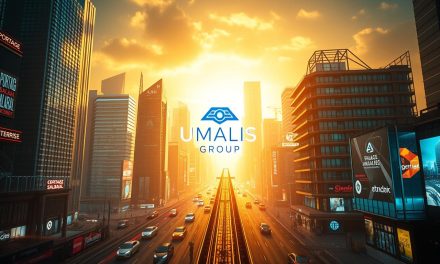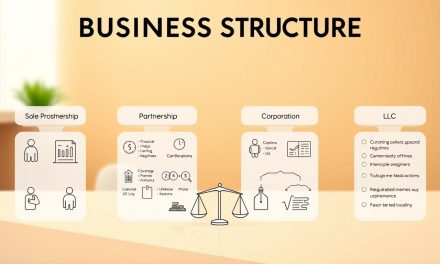What if the key to unlocking your company’s true financial potential isn’t about earning more, but about mastering the costs you already have? For many independent professionals, managing finances can feel like navigating a maze without a map.
Every business incurs costs to operate and generate revenue. The IRS defines legitimate business expenses as both ordinary for your industry and necessary for your operations. Understanding this distinction is the first step toward true financial control.
We believe that with the right knowledge, you can transform your financial approach. This guide provides a clear path to managing your company’s finances with confidence. You will learn how proper accounting practices directly impact your profitability and long-term security.
Our goal is to equip you with professional strategies used by finance experts. These methods help categorize and track spending effectively. This knowledge empowers you to make informed decisions that support sustainable growth.
For professional guidance and comprehensive support in managing your business finances, visit https://en.umalis.fr/ to discover expert resources designed to help independent professionals achieve financial stability and security.
Table of Contents
Key Takeaways
- Effective expense management is crucial for maximizing business profitability.
- Legitimate business costs must be both ordinary and necessary according to IRS guidelines.
- Proper accounting methods provide a clear picture of your company’s financial health.
- Strategic finance management directly supports long-term stability and growth.
- Expert guidance can simplify complex financial decisions for independent professionals.
Understanding Business Expenses
Before you can effectively manage your company’s finances, you must first clearly define what constitutes a legitimate business cost. This foundational knowledge separates simple spending from strategic financial control.
Defining What Constitutes an Expense
An expense is any cost your business incurs to generate revenue. This ranges from minor office supply purchases to major operational investments. Properly identifying these costs is crucial for protecting your financial interests.
The IRS sets specific criteria for deductible costs. They must be both ordinary for your industry and necessary for your operations. This ensures your claims are legitimate and compliant.
« An ordinary expense is one that is common and accepted in your trade or business. A necessary expense is one that is helpful and appropriate for your trade or business. »
Comparing Operating and Nonoperating Expenses
Operating expenses form the backbone of your daily activities. These costs, like rent, salaries, and supplies, are essential for smooth, efficient operations. They are deducted from revenue to show profit from core business activities.
Nonoperating expenses exist outside your main business functions. Examples include interest payments on loans. Recognizing this distinction helps you analyze true operational profitability.
We help you see that proper classification is a strategic tool. It reveals where your money goes and how efficiently you run your company. This foundational knowledge supports all advanced accounting and management strategies.
Mastering these concepts empowers you to make informed choices. You can then invest resources for maximum return and sustainable growth. For structured guidance, professional resources are available to build your confidence.
Identifying and Categorizing Different Expense Types
Mastering expense categorization unlocks powerful insights into your company’s financial health and operational efficiency. Proper classification transforms raw data into actionable intelligence.
We help you understand that different cost categories serve distinct purposes in your financial strategy. This knowledge forms the foundation of sound accounting practices.
Fixed versus Variable Expenses
Fixed costs remain constant regardless of business activity. These include rent, insurance premiums, and salaried employee payments. They provide budget predictability.
Variable expenses fluctuate with your production levels. Utilities, hourly wages, and shipping costs fall into this category. You can scale these based on operational needs.
Understanding this distinction helps you manage cash flow effectively. It also supports strategic planning for sustainable growth.
Special Considerations for Deductible Expenses
Some costs require special treatment in your financial records. Capital expenditures involve long-term assets like property and equipment.
These assets must be depreciated over time rather than deducted immediately. This affects your tax strategy and financial planning significantly.
Proper categorization isn’t just an accounting formality. It directly impacts your ability to analyze profitability and control costs. For comprehensive guidance on managing different expense types, explore our operational cost reduction strategies.
Recording Expenses: Cash vs. Accrual Methods
Two fundamental approaches govern how businesses track their financial activities throughout the fiscal year. Your choice between these accounting methods significantly impacts financial reporting accuracy and tax compliance.
We help you understand that selecting the right method provides either immediate cash clarity or comprehensive financial insight. This decision affects how you record expenses and perceive business performance.
Overview of Cash Basis Accounting
The cash basis method offers straightforward tracking. You record transactions only when cash actually changes hands.
This approach provides real-time visibility into your available funds. Small businesses often prefer this method for its simplicity and immediate cash position awareness.
Understanding the Accrual Basis Method
Accrual basis accounting recognizes transactions when they occur, regardless of payment timing. This method matches costs with related revenues for accurate period reporting.
While requiring more sophisticated record-keeping, accrual accounting reveals true financial health. It shows obligations and earnings as they happen, not when money moves.
| Feature | Cash Basis Accounting | Accrual Basis Accounting |
|---|---|---|
| Transaction Timing | Recorded when paid | Recorded when incurred |
| Complexity Level | Simple, straightforward | More detailed tracking |
| Financial Insight | Current cash position | Complete financial picture |
| Best For | Small businesses, simple operations | Growing companies, complex operations |
Choosing between these approaches depends on your business size, complexity, and reporting needs. Professional guidance from resources like https://en.umalis.fr/ can help determine the optimal method for your specific situation.
Optimizing Expenses in Daily Operations
Effective daily expense management transforms routine operations into strategic advantages. We help you see that every dollar spent should contribute directly to your business growth and income generation.
Your daily business activities require careful financial oversight. Proper management ensures resources flow toward revenue-generating opportunities rather than draining your company’s potential.
Aligning Expenses with Revenue Generation
Every operating cost should serve a clear purpose in your revenue strategy. We guide you to evaluate whether each expense directly supports income-producing activities.
Cutting costs indiscriminately can harm your business. Reducing spending on critical areas like marketing or quality materials may save money short-term but damage long-term revenue potential.
Techniques for Monitoring Day-to-Day Costs
Regular expense reviews become an essential part of your accounting routine. Compare actual spending against budgets to maintain financial discipline.
Tracking expense ratios helps identify inefficiencies in your operations. Real-time dashboards provide visibility over your financial activities, enabling quick adjustments when needed.
Professional platforms offer tools to establish efficient daily management routines. These resources help independent professionals build sustainable, profitable businesses through strategic expense control.
Budgeting and Tracking Expenses Effectively
A solid budget transforms financial guesswork into precise business strategy. We help you establish systems that provide clear visibility into where your money flows throughout the year.
Your budget serves as a financial roadmap documenting income sources and spending categories. Most businesses review these statements monthly or quarterly to maintain control.
Utilizing Expense Reports and Software Tools
Modern accounting tools automate the tracking process significantly. Digital systems categorize transactions automatically and generate real-time reports.
These platforms capture every payment type from small purchases to major credit transactions. The right software matches your business complexity without overwhelming your workflow.
Setting Up a Reliable Financial Monitoring System
Consistent tracking forms the foundation of financial stability. We guide you to create systems that capture all transactions accurately.
Automated features reduce manual work while improving data accuracy. Digital receipt capture and recurring payment tracking ensure nothing gets overlooked.
| Tracking Method | Best For | Key Features |
|---|---|---|
| Basic Spreadsheets | Simple business models | Manual entry, customizable categories |
| Expense Tracking Apps | Mobile professionals | Receipt scanning, real-time updates |
| Full Accounting Software | Growing businesses | Automated reporting, financial statements |
Strategies for Regular Review and Adjustment
Monthly budget reviews compare actual spending against projections. This practice helps identify variances quickly so you can make timely corrections.
Understanding financial statements empowers you to analyze performance like professional accountants. Regular adjustments keep your finances aligned with business goals.
For deeper insights into operational cost reduction strategies, explore our comprehensive resources. Effective systems give you the control needed for confident decision-making.
Managing Capital Expenditures and Long-Term Costs
Your company’s most substantial investments in property, equipment, and technology demand a different approach than routine operational spending. These capital commitments shape your business foundation for years ahead.
We help you understand that capital expenditures involve acquiring or improving long-term assets. This differs significantly from day-to-day operational costs that support immediate business activities.
Distinguishing Between Capital Expenses and Operating Costs
The IRS requires special treatment for these major investments. Unlike regular business expenses deducted fully in one year, capital costs must be depreciated over the asset’s useful life.
This accounting approach spreads the cost across multiple years. Buildings typically depreciate over 39 years, while equipment may have 5-7 year schedules.
Your company benefits from understanding this distinction. Proper accounting for capital assets like property and equipment ensures accurate financial reporting and optimal tax planning.
Strategic planning for these investments requires careful analysis of expected returns and maintenance payments. Professional guidance helps navigate complex capital decisions that strengthen your company’s long-term foundation.
IRS Guidelines and Tax Deduction Strategies for Expenses
Navigating tax regulations effectively can significantly impact your company’s financial health. Understanding the rules for deducting costs is a powerful tool for any business owner.
We help you apply these complex guidelines with confidence. Proper strategy ensures you maximize benefits while staying fully compliant.
Understanding Deductibility and « Ordinary and Necessary » Criteria
The Internal Revenue Service sets clear standards for what qualifies as a deductible business cost. These rules protect both your company and the integrity of the tax system.
To be deductible, a cost must meet two key tests. It must be both ordinary for your trade and necessary for your operations.
« An ordinary expense is one that is common and accepted in your industry. A necessary expense is one that is helpful and appropriate for your trade or business. »
This means you cannot deduct personal spending or costs unrelated to generating income. Knowing these limitations is crucial for accurate tax filing.
Industry Best Practices for Expense Allocation
Successful businesses develop systematic approaches to categorizing their spending. These practices align with both IRS expectations and sound accounting principles.
Common operating costs like office supplies, rent, and employee wages are generally fully deductible. This provides immediate tax benefits that improve your cash flow.
We guide you to document every transaction clearly. Maintaining organized records with receipts and business justifications supports your claims if questions arise.
For comprehensive support in developing a robust tax strategy, professional resources are available. Expert guidance helps you optimize deductions while ensuring full compliance with all regulations.
How to Apply Expense Management Strategies to Grow Your Business
The transition from theory to practice in expense management marks the difference between surviving and thriving in business. We help you bridge this gap with concrete examples and systematic approaches.
Real-World Examples and Case Studies
Major companies demonstrate strategic expense categorization on their financial statements. Apple’s approach divides operating expenses into research and development versus selling, general, and administrative categories.
This method reflects their core activities: innovation investment and product marketing. Your company can learn from these examples to structure expenses around strategic priorities.
Actionable Tips for Continuous Expense Optimization
Regular expense audits form a critical part of sustainable growth. Compare your ratios against industry benchmarks to identify optimization opportunities.
We guide you to establish key performance indicators for expense management. Track operating expense ratios and cost trends to measure improvement over time.
Systematic reviews—monthly for variable costs, quarterly for patterns—ensure continuous refinement. This accounting method helps your business adapt to changing conditions efficiently.
For comprehensive support in implementing these strategies, visit https://en.umalis.fr/. Expert guidance transforms expense management from a challenge into your competitive advantage.
Conclusion
Mastering your business finances is an ongoing process that builds confidence with each informed decision. You now understand how different cost types—from utilities and supplies to property payments—impact your bottom line.
Proper accounting transforms financial management from a challenge into your competitive advantage. The concepts you’ve learned help you control your money and time effectively.
Remember that consistent practice makes these principles second nature. For deeper guidance, explore how to optimize your business expenses with expert through professional resources.
Your journey toward financial security continues with support designed for independent professionals. We’re here to help you build the stable, profitable business you envision.
FAQ
What exactly counts as a business expense for tax purposes?
For the IRS, a valid business expense must be both « ordinary » (common in your trade) and « necessary » (helpful for your operations). This includes costs like rent for your office space, employee salaries, marketing fees, and utilities. Keeping detailed records of these payments is crucial for accurate financial statements and maximizing your tax deductions.
What’s the main difference between operating and capital expenditures?
Operating expenditures are the day-to-day costs of running your business, such as rent, supplies, and insurance. These are fully deducted in the year they are paid. Capital expenditures, like purchasing property or equipment, are considered long-term assets. Their cost is typically deducted over several years through depreciation, impacting your company’s balance sheet differently.
Should I use cash or accrual accounting for my small business?
The cash basis method records income and costs when money actually changes hands, offering simplicity for smaller operations. The accrual basis method records revenue when it’s earned and expenses when they are incurred, providing a more accurate picture of financial health. Many growing businesses switch to accrual as it better aligns with revenue generation activities.
How can I effectively track my daily business costs?
Implement a reliable system using expense reports and dedicated software tools like QuickBooks or FreshBooks. Categorize every payment—whether fixed costs like rent or variable costs like supplies—and review these categories monthly. This regular monitoring helps you identify spending patterns and align your costs with your income.
Are all business expenses tax-deductible?
Not all costs are deductible. The IRS has specific guidelines on what qualifies. Generally, deductible expenses must be directly related to your business activities and deemed « ordinary and necessary » for your industry. Personal costs, capital investments, and certain fines are typically not deductible. Consulting with a finance professional can ensure you apply these rules correctly.
What are some actionable strategies for optimizing my company’s expenses?
Start by analyzing your largest cost categories, such as property leases or service fees. Negotiate with suppliers, consider more cost-effective alternatives for utilities or insurance, and use budgeting software to set alerts for unusual spending. Regularly comparing your financial statements to industry benchmarks allows for continuous adjustment and supports sustainable growth.




